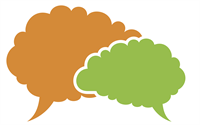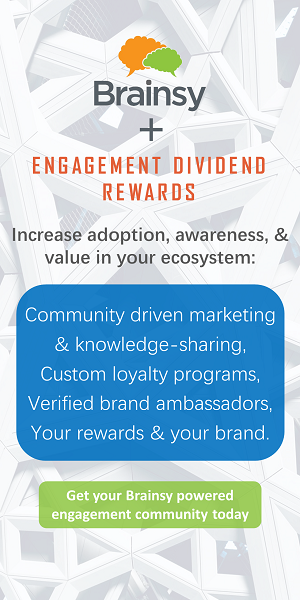An open challenge to Cloud Law and what it means for the legal issues of human values governed by mediated technology interactions.
As technology augments and mediates our daily lives what does it mean to be human if functioning and surviving in a digital dependent society necessitates or mandates technology use? What are the human values that emerge from this melding of co-dependent activity? What new power structures emerge from increased dependency on Cloud technology when individuals have limited control over balance and distribution of processes? How do we assess the Human Experience under these new terms and how does this experience change the value systems that Cloud Laws are based on? What new human rights might emerge from the evolving inter-dependency between the personal technologies (embedded) with its interaction on the Cloud? These are questions at core of our legal systems that challenge the notions and foundations under which laws are based. We are reaching an age in the 21st Century where it may not be so easy to separate Humans from the technology they depend on when that technology may have its own agency.
Cloud Law will need to address the changes in how people interface with the Cloud Computing services. The emergence of smart phones and net books with Internet access via the Cellular network provides possible innovations where location and presence are factors in how people will interact on-line. These developments are only a few of the advances that may challenge what Cloud Law needs to address in the future. For example, privacy controls get escalated from misuse of personal information to physical vulnerabilities if the individual is easily tracked in real-time. What legal safeguards will be required to prevent threats that have serious consequences while providing for privacy rights that facilitate further innovation? Innovation is not without consequences of responsibility, in our short history of information technology one can easily see how uses and abuses have emerged that the inventors and designer never intended. For every advance its uses are many and the global reach and network effect generates a system dynamics with amazing benefits but equally threatening capabilities. Gaining a deeper understanding of the foundation and phenomenon to help anticipate what legal frameworks are needed for Cloud Law requires research and considerate thought that can be put into pragmatic action to reset the policies and systems on a course of great promise for the 21st century.
A review of trends and transformation in how people may interface and interact on the Cloud might help to illustrate the legal considerations that may accompany each innovation and the questions they raise.
• End of Legal Stability – if the interfaces to the Cloud are embedded then the laws that are based on explicit interfaces between known or expected outcomes gets challenged in ways that are difficult to anticipate. Mobile devices become wearable computing, implanted medical devices are embedded in the objects we interact with, ambient intelligence within the spaces we exist in; this pervasive and ubiquitous mediated and augmenting technology blurs the experiences that people have and the judgments they apply to situations. How do new laws build on older frameworks and how will people understand the new legal framework and use them effectively?
• Growth of dependency on technology and hyper- connectivity – communications is consuming our lives instead of freeing up time, the constant digital presence of mobile devices will extend to smart mobs acting as a collective. What can be demanded of device reliability and expectations of safety when the processes use services on the Cloud? When the Cloud gets attacked or an individual’s life is disrupted by Cloud failure or unexpected outcomes what laws will be needed to remedy or ascribe liability and responsibility. How to create the laws to address infrastructure breakdown and malfunctions. If laws are implicit and taken for granted as part of the usage of the Cloud, then how might that impact precedent and legal judgment? If the Cloud has autonomous processes how does that impact the legal framework?
• Digital Footprint and Life Logging – as the Cloud gets used to capture, manage, share, and archive personal traces of information in databases controlled by corporations and governments this reflects a loss of control of one’s personal digital assets. Do we need laws to manage vast amounts of personal data and the ownership and analysis of the digital footprint? What are the implications for the law and how do these needs to evolve to address balance the rights of the individual, the public good, the corporations, and the government to services their public?
• Growth of digital creative’s – Cloud computing facilitates the consumption, production, and publication of professional and personal works that remain as artifacts distributed by the entities the control the Cloud. The division of ownership and span of control has much to be desired in terms of legal protections for all modes of participation.
The above trends are only focused on the Information Technology aspects of innovation and omit the advances in Life Sciences. The new area of research in Computational Biology may bring together Biology and Information Technology in ways that will merge and blur the boundaries such that our conception of physical aspects of being human may change as well. As technology gets further infused into our daily lives such that human experience is indistinguishable from the mediating technology, when it becomes invisible and always present, how we think of human values is likely to change and the human rights that are at the foundation of a legal system may be challenged.
Reference:
Sellen A., Rogers Y., Harper R. Rodden T., Reflecting Human Values in the Digital Age, Commun, ACM 52, 3 (March 2009)
Ray Garcia originally published June 23, 2009 on Harvard Law Lab blog of the Berkman Center for Internet and Society
Register for FREE to comment or continue reading this article. Already registered? Login here.
1
